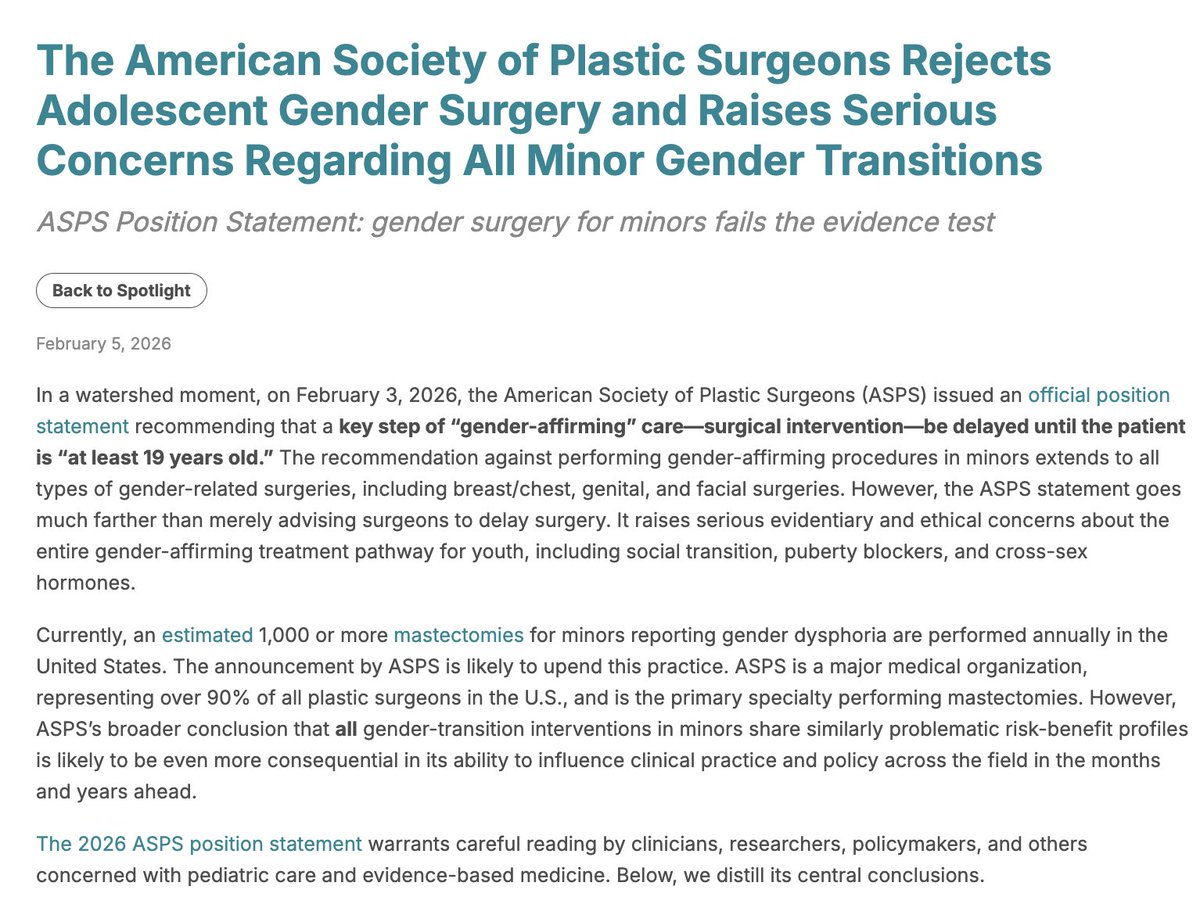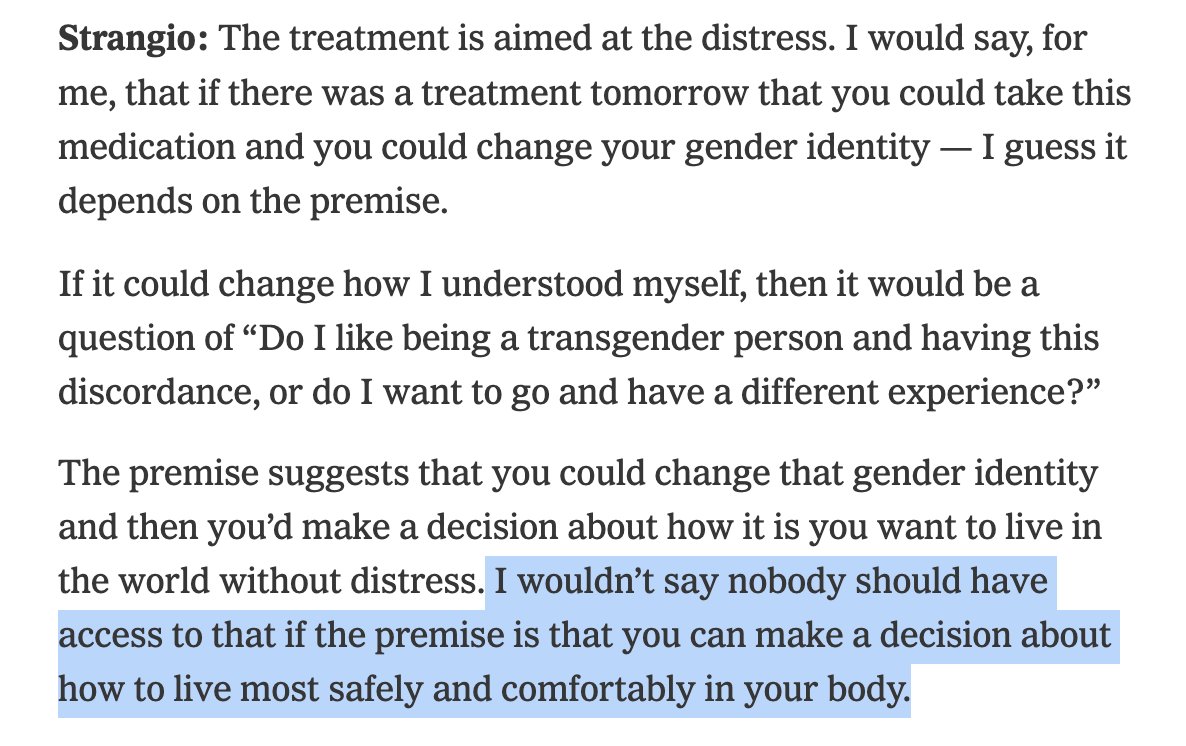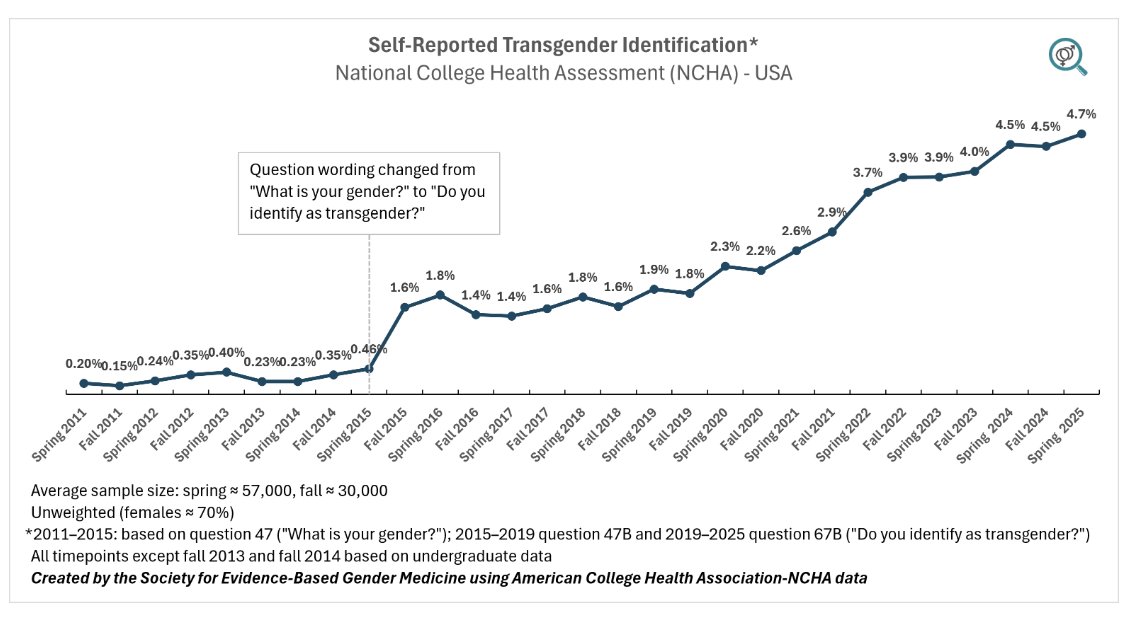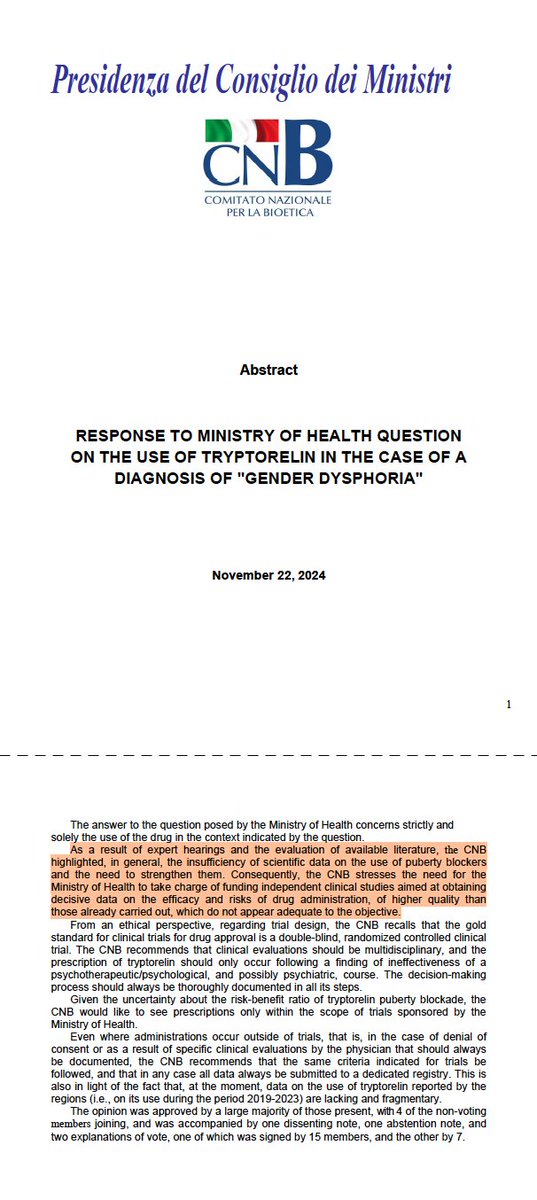How to get URL link on X (Twitter) App

 About 1,000+ mastectomies for gender-dysphoric minors are performed each year in the U.S, most done by plastic surgeons. The ASPS statement suggests this practice will be upended. But the analysis that ASPS offers for the rest of the transition pathway signals far more profound changes are likely to come.
About 1,000+ mastectomies for gender-dysphoric minors are performed each year in the U.S, most done by plastic surgeons. The ASPS statement suggests this practice will be upended. But the analysis that ASPS offers for the rest of the transition pathway signals far more profound changes are likely to come. 
 When pressed on psychotherapy for gender dysphoria, Strangio concedes it should be available, and does NOT level the charge of "conversion therapy." Still, Strangio conflates therapy with changing identity. Letting go of one's drive to medicalize has no such requirement. /2
When pressed on psychotherapy for gender dysphoria, Strangio concedes it should be available, and does NOT level the charge of "conversion therapy." Still, Strangio conflates therapy with changing identity. Letting go of one's drive to medicalize has no such requirement. /2 

 Medical societies are accountable to their members, yet they often ignore their members' preferences, instead superimposing their own agendas, the authors point out.
Medical societies are accountable to their members, yet they often ignore their members' preferences, instead superimposing their own agendas, the authors point out.

 Per the NCHA data, in 2025, 8% of women & nearly 5% of men attending U.S colleges had a non-"cisgender" identity. While there is no evidence of a drop in transgender/nonbinary identities, the data suggest that we may be approaching a plateau. /2
Per the NCHA data, in 2025, 8% of women & nearly 5% of men attending U.S colleges had a non-"cisgender" identity. While there is no evidence of a drop in transgender/nonbinary identities, the data suggest that we may be approaching a plateau. /2 


 While systematic reviews provide only low-certainty evidence of harms of estrogen and testosterone blockers in males, in reality the harms are likely, as explained by the authors of the paper. Lack of evidence of harm ≠ evidence of lack of harm. /2
While systematic reviews provide only low-certainty evidence of harms of estrogen and testosterone blockers in males, in reality the harms are likely, as explained by the authors of the paper. Lack of evidence of harm ≠ evidence of lack of harm. /2
 📄 HHS Review (2025):
📄 HHS Review (2025):

 The study is not a systematic review (a limitation that the authors note), but it provides a comprehensive overview about what's known about the evidence base underpinning youth gender medicine. /2
The study is not a systematic review (a limitation that the authors note), but it provides a comprehensive overview about what's known about the evidence base underpinning youth gender medicine. /2
 The final Guidelines are the result of a year-long debate and revisions following the release of the earlier draft. The final recommendations are now more cautious, but core issues remain.
The final Guidelines are the result of a year-long debate and revisions following the release of the earlier draft. The final recommendations are now more cautious, but core issues remain. 
 The link to the article is below:
The link to the article is below: 
 The Italian National Bioethics Committee's (CNB) key recommendations are:
The Italian National Bioethics Committee's (CNB) key recommendations are:












 In her acceptance speech, Dr. Kaltiala discussed how current cultural trends undermine healthy adolescent development. "The slow development towards the authentic self turns into a lightning-fast self-presentation on social-media forums that are always under observation."
In her acceptance speech, Dr. Kaltiala discussed how current cultural trends undermine healthy adolescent development. "The slow development towards the authentic self turns into a lightning-fast self-presentation on social-media forums that are always under observation."
